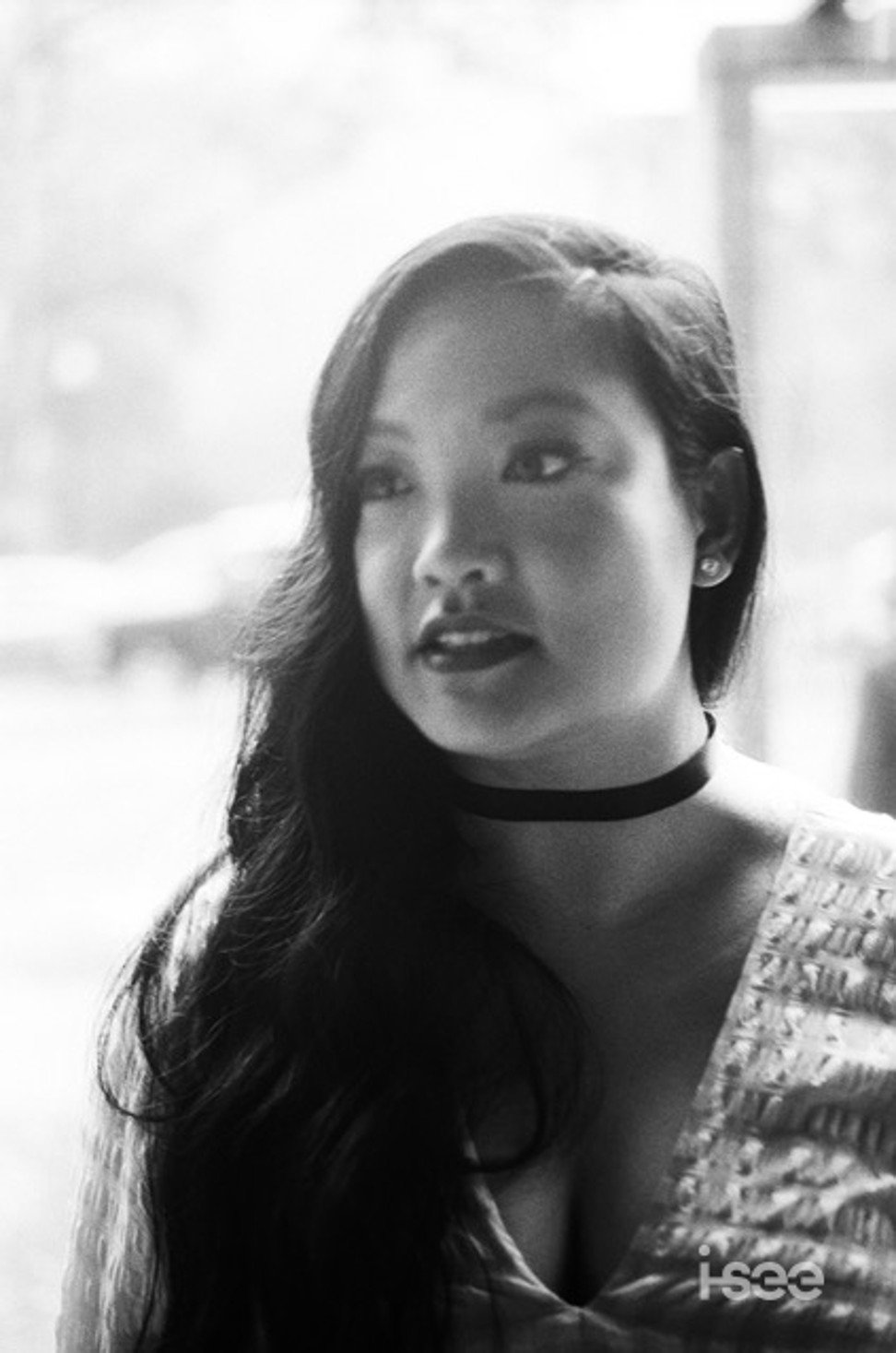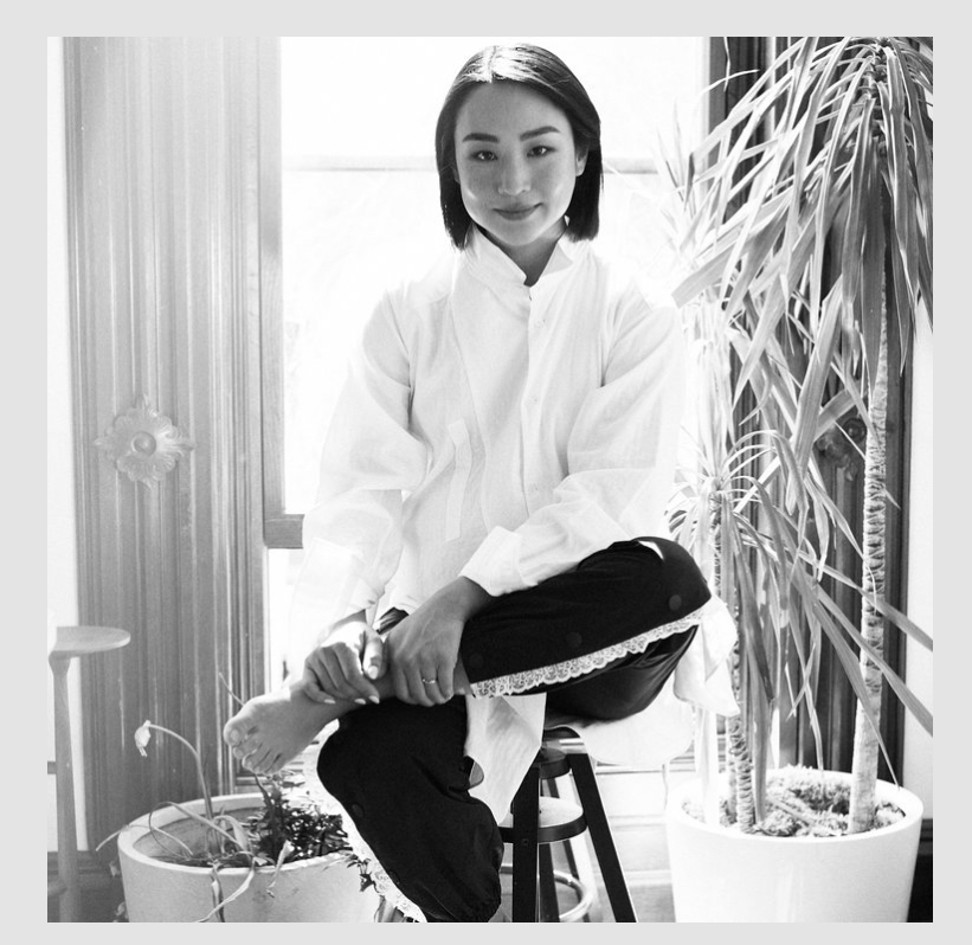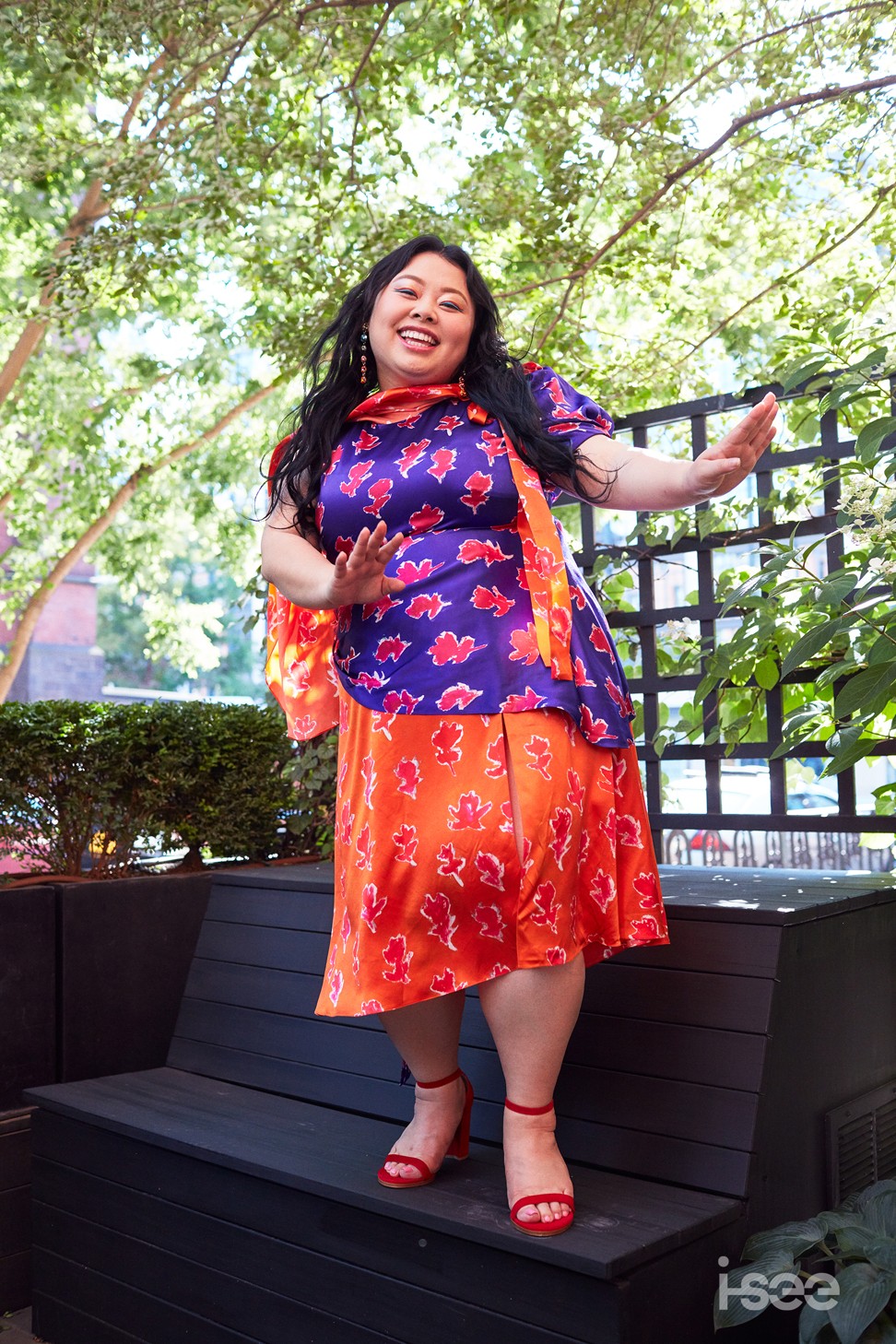
Beauty, wellness, personal journeys – fashion trio start online platform to give Asian-American women a voice, and say ‘We want women to build a community’
- Three Asian-Americans, with roots in fashion and media, set up their platform, i-see, as a place for women like them to share their experiences
- Celebrities including actress Greta Lee and Japanese comedian Naomi Watanabe have been featured, but it’s a place where ‘whoever wants to suggest ideas can’
In an age where most of our daily interactions take place online, building a community on the web is not an easy task, especially on global platforms such as Twitter, which don’t facilitate conversation. A number of websites are trying to change that, focusing on particular readerships and aiming to build communities of their own.
Bifen Xu, Dora Fung and Wen Zhou, three accomplished individuals in their respective fields, are behind the platform. Xu has worked for Condé Nast, The New York Times and launched Yahoo Style with Fung and former Elle creative director Joe Zee. Fung, also from the editorial world, helped launch Vogue China and has worked at various media companies, including The Cut and Carine Roitfeld’s magazine CR.

These three women have been long-time friends, and i-see was born out of the evolving, ongoing conversation between them and their other Asian-American friends.
“For years and years and years, every time we came together, we have been saying, ‘What is our community? Where can we go and hear about stories about the people who look like us and have similar experiences?’ Or different experiences,” says Zhou.

Fung says: “[i-see is] inclusive. It's not just Chinese. It's not just Japanese or Korean. It's about all Asians,” highlighting their intentional efforts to feature Asian-Americans other than East Asians, which admittedly is a group that the Asian-American discourse has historically centred on too much.
Fung maps out their vision for i-see’s beauty, fashion, and wellness sections. “It's also claiming back a few things that really belong to Asian cultures. There are so many treatments that have cultural nuances that belong to the Asian community, but nobody really knew about it. It was taken over and repackaged and resold back to us.”
Whether it’s beauty, wellness, representation, or personal stories, the word community is one that the three founders circle back to in our conversation. Community is one of those tricky words, or at least, as Xu acknowledges, sometimes a buzzword that doesn’t quite mean anything. It’s also one that means something different to probably every person that you talk to. So what does the word community mean to them and i-see?

“Right now, i-see is small so it basically is like a community,” Xu says. “We talk to everybody that writes to us. We've met so many people through it, people that ask us if they can help. We've had coffee with people. Whoever wants to be part of it can. Whoever wants to suggest ideas can. It's accessible enough.”
Zhou also notes that when building the platform from the ground up, they’ve not looked for outside funding. “Purposefully, we decided that when we started this digital space, we didn't want to raise funds. We didn't want to take any type of sponsorship content. We specifically did that for the reasons of building an authentic community,” she says.
[i-see] is inclusive. It's not just Chinese. It's not just Japanese or Korean. It's about all Asians … It's also claiming back a few things that really belong to Asian cultures
Asked about the challenges of creating a community online and competing with the rise of influencers and their focus on followers, Xu points out wryly: “Influencer is such a big word, it's talking about anyone with social following. There's so many kinds of people doing that you can't really lump them all together. I think that it feels that way on Instagram, and that's how it sometimes comes off.
“So I feel like the only thing is to be super truthful and authentic and talk to people and meet people in person. That's all that you can do. Be who you are.”
Beyond creating an online magazine, i-see founders have big dreams. They’re thinking about the potential of other tools to build a community, whether they be breakfasts, lunches, or a podcast. Fung says: “i-see has the potential to become a lifestyle where everyone can come. We're an open door, whether you're Asian or you're not Asian. You're interested in storytellers. You're interested in whether it's a health and wellness question, whether it's a political question you want answered.”
Zhou adds: “We will be championing for our community to talk about the topics that are really, really important to us. Why am I the only international brand CEO that's Chinese? Why are there not more board seats for Asian-American women?”
While Xu, Fung, and Zhou have articulated a passionate and strong vision, perhaps the truest sense of community is how fluid that vision is. The platform is open to evolving organically with its members and contributors, and at this stage, they’re able to have meaningful conversations with people who vibe with the vision. i-see is only the beginning.
